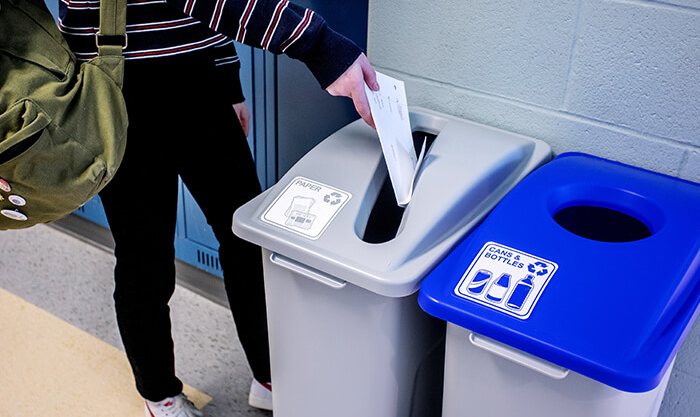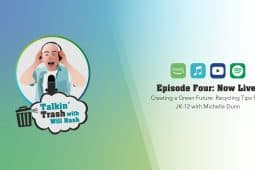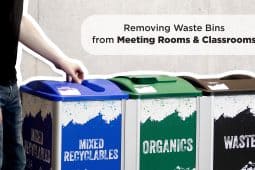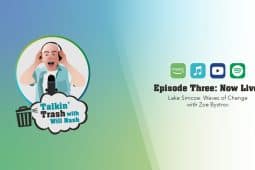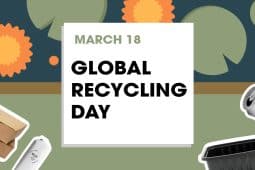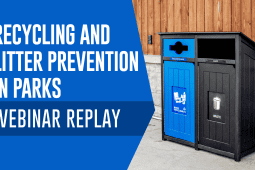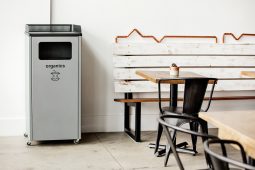Have you ever been sitting at your desk and witness a co-worker throwing a pop can into the trashcan RIGHT BESIDE the Recycling? Or seen a trashcan overflowing with balled up papers and an empty blue-bin right beside it? This is a common phenomenon.
Many people believe recycling is just too difficult. The question is, what exactly is it that’s so hard about Recycling, and ultimately, what can be done to make it easier?
Material Miscommunication
Although it may seem like a simple concept, there are many things that are not common knowledge about recycling. For example, can you spot the difference between plastic films like grocery bags and HDPE plastic such as laundry detergent containers? One type of plastic is recyclable, and the other isn’t. This can be deceiving, as the common discussion about plastic is that it is recyclable, but that’s not always true.
This can be frustrating to many people, making them want to give up on recycling entirely.
So before you dispose of your greasy pizza boxes, paper towels, or grocery bags, check your locak recycling guidelines. Once you become an expert and you witness someone else improperly recycling, don’t discourage them, but instead educate them respectfully. Anyone who shows a willingness to recycle and help conserve natural resources will likely care to learn if they are not doing it properly!
The Mobius Loop Confusion
A common misconception amongst even the most enthusiastic recyclers is what does the recycling symbol actually MEAN? Does it mean its recyclable? Or does it mean its made from recycled material? Who exactly determines if a product can carry this prestigious honor?
The Universal Recycling Symbol, or Mobius Loop, is a helpful marker in identifying packaging or items that can be recycled. However, some worry that it has been used in the past by companies who attempt to “greenwash” or falsely identify their packaging as recyclable. This mistrust has caused frustration with recycling, causing some to chose not to recycle altogether. However, it is lesser-known that companies have actually been held responsible for their false advertising, discouraging other companies from making the same mistakes. It is more common that the symbol is accurate than not.
Recycling Inconsistancy by Region
One of the most confusing parts about Recycling is the changes in what materials can be accepted from place to place. Even after you have finally navigated all the loops and hurdles of Recycling in your workplace or household, the next time you visit a different city or county, their regulations may be different.
The underlying issue is the lack of standardization across the Recycling industry. Different haulers, Recycling centers, geographic regions, municipalities, and markets all have their stipulations on what can and can’t be accepted in the blue bin.
So, what can we do?
To start, educating yourself, your family, and your workplace on the Recycling guidelines at home or in the office is a fantastic place to start. Simply contact your municipality or Hauler, and they would be happy to tell you what to do with those confusing items.
Secondly, and seemingly counterintuitive, is to practice the “when in doubt, throw it out” principle. By Recycling materials that can’t actually be processed, you could be causing more harm than good. A recycling facility may have to throw out an entire bag or stream of recycling due to contamination.
Lastly, and most importantly, reduce the amount of waste you generate in the first place. Opt for litterless lunches, use fewer paper towels, purchase foods with reduced packaging. By reducing the amount of Waste generated you are eliminating the confusion with items and showing companies that consumers don’t need big flashy packaging. Vote with your wallet and say no to excessive packaging.
By following these strategies and passing on all the Recycling knowledge that you have to those that will listen, we can begin to shift the focus on environmental Sustainability and hopefully show regulators that the Recycling industry needs standardization across the board!
